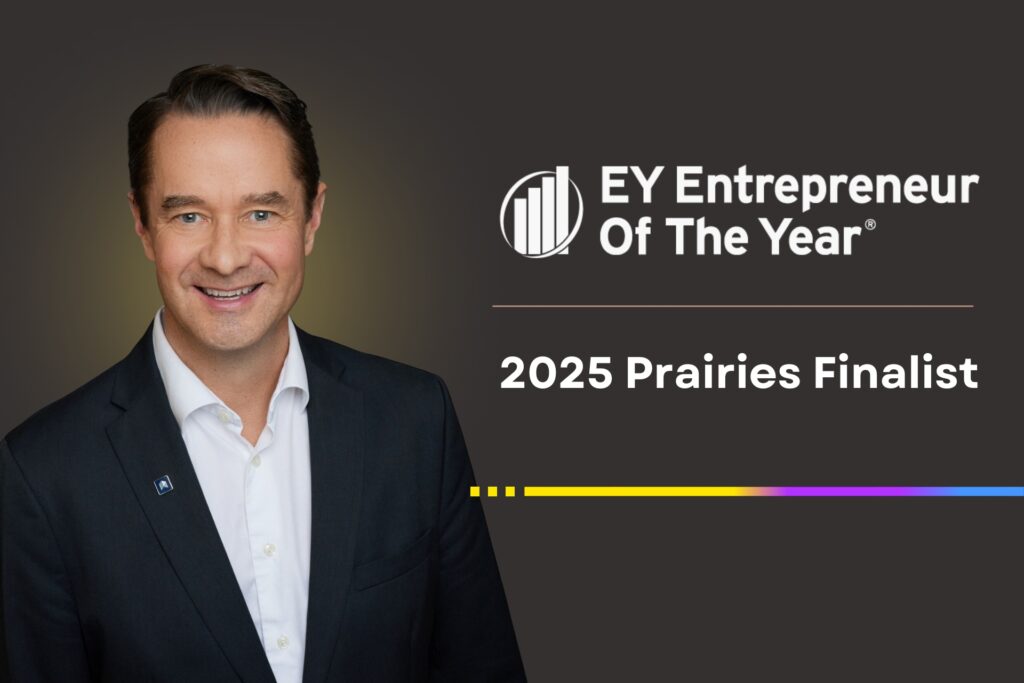Jeff Aplin Talks Executive Salaries [Audio]
Share This Article
David Aplin Group President, Jeff Aplin, talks with CBC News about the Alberta sunshine list and executive level salaries with Edmonton AM host Mark Connolly. He provides insights on executive salaries and what constitutes such high rates of pay for leaders. [Audio]
David Aplin Group’s Executive Search division finds senior management and executives who best fit your current business strategies and share your vision for the future. It’s all about leadership.
Audio script:
MC: At a premier research university with almost 40,000 students, the pay $500,000 a year plus benefits. That’s what David Turpin makes as President of the University of Alberta, according to information released last week on the provincial government Sunshine List. My next guest says that kind of money isn’t uncommon in the world of top executive pay. Jeff Aplin is the President of the David Aplin Group, a recruiting firm that conducts executive searches, he joins us on the phone from Calgary this morning. Good morning Jeff.
JA: Good morning, Mark how are you?
MC: I’m good thanks. Now, I think a lot of us would have a hard time wrapping our heads around a half-million dollar annual salary, so what factors into that kind of compensation?
JA: Well, typically when you’re looking at executive compensation and a framework for that, there are a few things that determine the level of compensation. One is the organizational size by budget and revenue, the second is the organizational size by headcount or number of people, and then the third, which is more subjective, is the mandate. Is it more of a mandate as a leader to initiate transformational change in the organization or is it more of a maintenance kind of mandate.
MC: And what about actual skills like what skills would be needed for these executive jobs?
JA: Executive skills, obviously leadership ability, communication ability, strategy, overall intelligence, but fundamentally, one of the biggest differentiators for why executives tend to get paid at a higher level is the ability to deal with stress. It’s a high-pressure cooker kind of a role and a lot of people don’t have the ability to deal with that constant stress, criticism, competing interests and so stresses is a fundamental reason why executives get paid what they do.
MC: Now the whole discussion was prompted by the release of top Alberta government salaries so is it fair to compare private and public sector salaries and is it difficult to make those comparisons?
JA: It’s definitely difficult and the Sunshine List in Alberta this year is a larger list and includes universities and stuff like that, so I think the comparisons are difficult. I think some are more relevant than others, I’ll give you an example, my understanding is just at the University of Alberta alone, there are well over a thousand people making six figures according to that list, if I got that correct, so why that’s really important, I don’t honestly don’t know. If you look at any university of that calibre, an excellent calibre of the University of Alberta around the world, that’s just what it takes to run an organization like that, so I’m not sure why that’s particularly important. Actually, I think it’s a bit of an invasion of privacy but at the same time when you’re looking at taxpayer dollars, other agency boards commissions, for example, there is, I think, it’s important to bring those salaries out into the open and then have more of an executive compensation framework that’s scalable and sustainable over time.
MC: Now, is it fair to compare between different jurisdictions like for instance the top executive of the Workers Compensation Board makes twice the salary here in Alberta than his counterpart in Ontario.
JA: I think that’s relevant to benchmark across provinces. Again I would go through those criteria of what’s the size and then obviously I would think Ontario would be a larger mandate but it also depends on what the organization needs and that’s the conversation that a compensation committee at a board level would have, which is who’s the individual, what the profile of the individual who could achieve this mandate of leadership for our organization, and what’s it going to cost and in some cases the same role, but a different province, is going to be relevant. And other times it’s going to be less relevant because there’s more change or a different mandate. Sometimes it’s a turnaround or complete change that needs to happen and other times it’s more maintained which is a little bit easier to do at a lower cost.
MC: You know, I find these Sunshine Lists to be kind of interesting, because in some ways, obviously, you want this public accountability, you want there to be the sunshine shining in, but can’t they also be inflationary? I mean, people see what certain jobs pay and they go, ‘oh well I’m doing that’ or ‘I’m doing this’, right?
JA: Yeah, again like I mentioned, the privacy issue, that is a real issue. I think if you’re in public service in the executive level of the government cabinet and that sort of thing, it’s obviously extremely important to be transparent on that. I would suggest that executive levels for agency boards commissions and government-appointed roles at the executive level are also important to be transparent. But I do question how far does that go, right, I mean where’s the boundary and I point to the University Professors, I’m really not sure why that’s relevant to the general public.
MC: Now, when you’re talking about people getting up to really high salaries of four or five, six hundred thousand dollars per year, are they very common in Alberta?
JA: There’s a small proportion of people overall in the province, but there’s lots of different ways to earn a six-figure income. Certainly in sales and those kind of in pay-for-performance, there’s risk attached to those incomes, but if you are successful, a lot of people can make that whether you’re a real estate agent or another salesperson on commission to drive revenue for an organization and then once you get into the executive ranks of course it’s more and more common. But it’s funny having this conversation after Canada Day with the sports free agency, as well and a lot of the talk with Steven Stamkos signing a 68 million dollar contract. While he could have got probably 80, 90 million if he had gone to Toronto or Buffalo, for example, but he took less money at the “low low price” of 68 million dollars in Tampa. I mean, it’s all relative Mark, and you know there are plenty of people that if they’re really motivated and willing to pay the price can earn into the end of the six figures for sure and then sky’s the limit when you get into entertainment or sports.
MC: For sure, Jeff it’s been enlightening thanks for chatting with us this morning.
JA: Well, thank you Mark, I appreciate the opportunity, have a great day.
MC: Jeff Aplin is the president of the David Aplin Group a national executive search firm.




